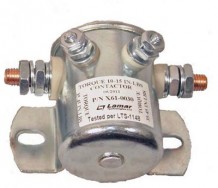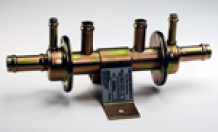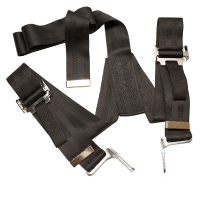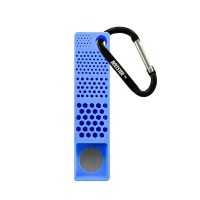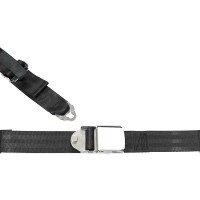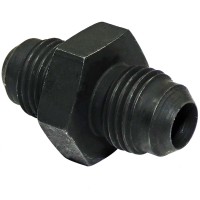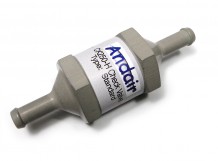1-877-795-2278 | info@aircraftspruce.ca
Aircraft Spruce Canada
Brantford, ON Canada
Corona, CA | Peachtree City, GA
Chicago, IL | Wasilla, AK
Aircraft Spruce Canada
Brantford, ON Canada
Corona, CA | Peachtree City, GA
Chicago, IL | Wasilla, AK
SAME DAY SHIPPING ON ORDERS PLACED BY 2 PM | 877-795-2278
T-37B Tweetie Bird Blue/White Model 1/48
$249.95/Each
Part# 13-10755
MFR Model# B0348T32W
MFR Model# B0348T32W
Overview
|
This high quality replica is handcrafted from mahogany and comes with a wooden base. Length is 7-1/2" and wingspan is 8-1/2". Scale 1/48. The Cessna T-37 is a twin-engine trainer used for teaching the fundamentals of jet aircraft operation, and instrument, formation and night flying. Widely known as the Tweety Bird or Tweet, it has been a primary trainer for the United States Air Force (USAF) for decades, and serves in the air forces of several other nations as well. It is the first USAF jet designed originally as a jet trainer, rather than being modified from existing designs. The T-37s flying characteristics help students in transitioning to the faster T-38 Talon in the latter stage of flight training. Its side-by-side seating allows the instructor to observe and train the student pilot easily. In the spring of 1952, the USAF issued a request for proposals for a lightweight two-seat basic trainer for introducing Air Force cadets to jet aircraft. Cessna responded to the request with a twin-jet design that featured side-by-side seating. The USAF liked the design and awarded Cessna the contract in 1954. The XT-37 prototype first flew on October 12, 1954. The first production T-37A was delivered in 1956 and entered operational Air Force service in 1957. Instructors and students considered the T-37A an extremely pleasant aircraft to fly. It was agile, responsive and capable of all traditional aerobatic maneuvers. However, it was very noisy. The intake of air into its small turbojets emitted a high-pitched piercing shriek. The whistling sound quickly gave the T-37 the name “Tweety Bird” or “Tweet”. The USAF spent a lot of time and money sound-proofing buildings at bases where the aircraft was stationed, and ear protection was mandatory for ground crews and pilots when near it. The USAF liked the T-37A but felt that it was underpowered. In 1959, the T-37B joined the Air Force. It had more powerful engines, a redesigned instrument panel, improved avionics, more thrust and better reliability. A total of 552 newly-built T-37Bs were produced through 1973. Eventually all surviving T-37As were upgraded to T-37B standards as well. |
Q&A
Please note, Aircraft Spruce Canada's personnel are not certified aircraft mechanics and can only provide general support and ideas, which should not be relied upon or implemented in lieu of consulting an A&P or other qualified technician. Aircraft Spruce Canada assumes no responsibility or liability for any issue or problem which may arise from any repair, modification or other work done from this knowledge base. Any product eligibility information provided here is based on general application guides and we recommend always referring to your specific aircraft parts manual, the parts manufacturer or consulting with a qualified mechanic.
Q: Scale of model
Length is 7-1/2" and wingspan is 8-1/2". Scale 1/48.

 Aircraft Spruce Canada
Aircraft Spruce Canada






